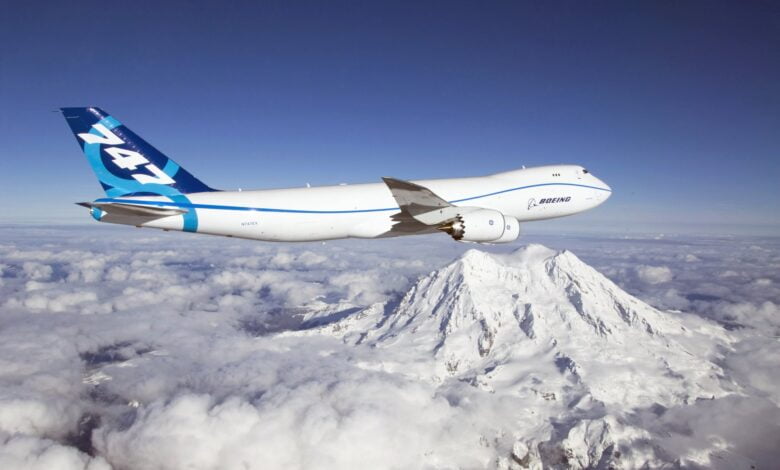
Everything you need to know about buying Boeing stock today
In recent months, Boeing (BA) has received several large orders for its 737 Max passenger narrow-body jets, growth also has in military orders, and the company reported earnings for the first time since 2019 in its Q2 2021 report.
Boeing jumped 4% on Wednesday after it said it could see a boom in new aircraft orders in China over the next 20 years.
After a partial recovery in 2020, Boeing’s share price has remained essentially unchanged since the beginning of this year.
Before deciding to buy Boeing shares today, investors should weigh the pros and cons, assessing the growth potential and risks for the company.
All the pros and cons of buying Boeing stock
Boeing is gradually recovering from the crisis
Boeing posted strong 44% revenue growth in the most recent reporting quarter, posting a profit for the first time since the crisis began in 2019. In addition, the company’s management said that the cash flow should return to positive in the medium term.
Boeing also said the company is now prioritizing paying off debts accumulated due to grounding the 737 Max and is considering selling additional shares. As a result, Boeing has suspended dividend payments and shares buyback programs, which is a good move under these conditions.
Boeing orders are growing
Boeing sees increased demand for its 737 Max after 20 months of grounding. The FAA approved the aircraft’s return to service on November 18, 2020, and in early 2021, obtained approval for the 737 Max was from the European Union and Canada.
Major orders for the 737 Max include 200 aircraft for United Airlines (UAL), 34 for Southwest Airlines (LUV), 24 for investment firm 777 Partners, 14 for leasing company SMBC Aviation Capital and 12 units for Alaska Airlines (ALK). The Irish company Ryanair and Dubai Aerospace Enterprise have also placed an order for 737 Max aircraft.
Boeing has announced that it plans to ramp up production of the 737 Max from its current low production level to 31 aircraft per month in March 2022. Boeing delivered just 22 jets last month, including 14 commercial passenger aircraft.
Boeing also manufactures F / A-18 Super Hornets for the US Navy and foreign military forces.
On January 20, the US Air Force signed a $ 2.1 billion contract with Boeing to supply an additional 15 tankers for a total of 94. On April 1, the Australian Navy and Air Force ordered 11 P-8 naval reconnaissance aircraft.
Boeing sees excellent potential in the Chinese market.
On Wednesday, Boeing released its updated forecast for the potential of China’s aviation market over the next 20 years.
Boeing expects Chinese airlines to require 8,700 new aircraft by 2040, up 1.2% from the previous forecast of 8,600 jets last year. According to the statement of the American aircraft manufacturer, they will cost about $ 1.47 trillion at list prices. In addition, the demand for e-commerce continues to grow and demand the growth of air cargo.
A key positive for Boeing is the rebound in 737 Max sales and some rebound in air travel amid COVID-19 vaccinations. However, Wall Street analysts see several negative factors and risks for the company.
Boeing still faces many obstacles.
The key obstacle is the new Delta outbreak and the still weak vaccination rate in developing countries.
The International Air Transport Association recently announced that it does not expect air travel to return to 2019 levels by 2024.
China still hasn’t approved the return of the 737 Max to the skies.
China accounts for a quarter of Boeing’s orders for all aircraft. Still, due to the lack of approval for the 737 Max and virtually closed borders (the number of international flights in the country is only 2% of pre-COVID levels), the company’s growth prospects in this market are very uncertain.
The Federal Aviation Administration still has not given Boeing permission to resume deliveries of 787 aircraft. In addition, demand for large aircraft is low due to the weak recovery of transatlantic flights.
Unstable income growth.
Boeing’s cash flow will be volatile over the next few years as the manufacturer supplies many aircraft it has already built from its inventory.
Outcome
The lack of significant gains in Boeing shares in 2021 reflects investors’ uncertainty in the company’s near-term prospects.
Today, the world’s airlines have a substantial deferred demand for new aircraft. As a result, Boeing will receive confirmation of retail orders only under favorable conditions.
Most market analysts give the verdict to “hold” Boeing shares and refrain from buying in the current environment.